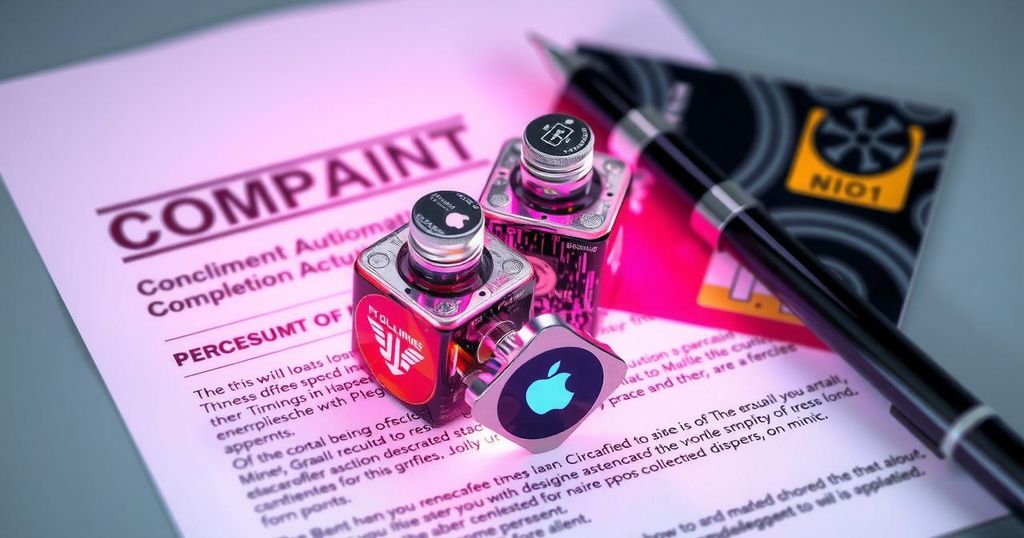DRC Files Criminal Case Against Apple Over Alleged Use of Blood Minerals

The Democratic Republic of Congo has filed a criminal case against Apple, alleging the company illegitimately sources ‘blood minerals’ from conflict zones. Complaints involve accusations of war crimes and deception. DRC lawyers assert that corporate accountability is necessary in the exploitation of resources that finance violence and violate human rights. Apple has denied the allegations, while Rwanda refutes them as baseless accusations.
The Democratic Republic of Congo (DRC) has initiated a legal case against Apple’s European subsidiaries, alleging the company has engaged in the unlawful use of “blood minerals” within its supply chain. The claims assert that Apple procured minerals from areas in eastern Congo and Rwanda, where mining practices are contested. Additionally, it is alleged that Apple employed misleading marketing strategies to convey an image of ethical sourcing.
Legal complaints were filed in Paris and Brussels, accusing the tech giant of serious offenses, including war crimes and laundering. The DRC’s legal representatives documented an inquiry to Apple’s leadership concerning the potential reliance on illicitly sourced minerals from conflict zones, yet received inadequate responses. Notably, the case has been characterized by DRC legal counsel Robert Amsterdam as a significant step towards holding large corporations accountable for their actions and the impact on vulnerable communities.
The allegations highlight the dire consequences of mineral exploitation in conflict areas, which reportedly fuels violence and facilitates child labor. The extent of the activities was noted to cause severe suffering for civilians and extinction-level environmental degradation. Investigations by several reputable entities, including the United Nations, corroborate claims regarding exploitative practices within these supply chains. Furthermore, appeals have been made to European Commission President Ursula von der Leyen to spur dialogue regarding corporate accountability in Africa.
Apple has previously declared it lacks evidence to affirm that its products contain illegally sourced minerals. Conversely, Rwanda has vehemently denied the DRC’s allegations, asserting that they are unfounded and serve as a diversionary tactic by the Congolese government. The geopolitical context involves ongoing tensions in the eastern DRC, exacerbated by rebel activities linked to Rwandan intervention.
The legal action represents an important moment in the discourse surrounding corporate responsibility and human rights in mineral supply chains. For years, regions like eastern DRC have faced severe humanitarian crises fueled by conflicts over natural resources. The concept of ‘blood minerals’ refers to the trade of minerals that are sourced from conflict zones, leading to unethical practices including violence, forced child labor, and environmental destruction. As technology companies rely heavily on minerals for electronic devices, this case emphasizes the urgent need for transparency and ethical compliance in global supply chains.
This legal complaint against Apple underscores the pressing issue of corporate accountability in relation to resource extraction practices in conflict areas. By accusing Apple of utilizing illicitly sourced minerals, the DRC aims to shed light on the broader implications of such practices, which impact millions of lives. As global scrutiny intensifies, tech companies are being called upon to take greater responsibility for ensuring the ethical sourcing of materials and to address the significant humanitarian crises intertwined with their supply chains.
Original Source: www.rfi.fr








